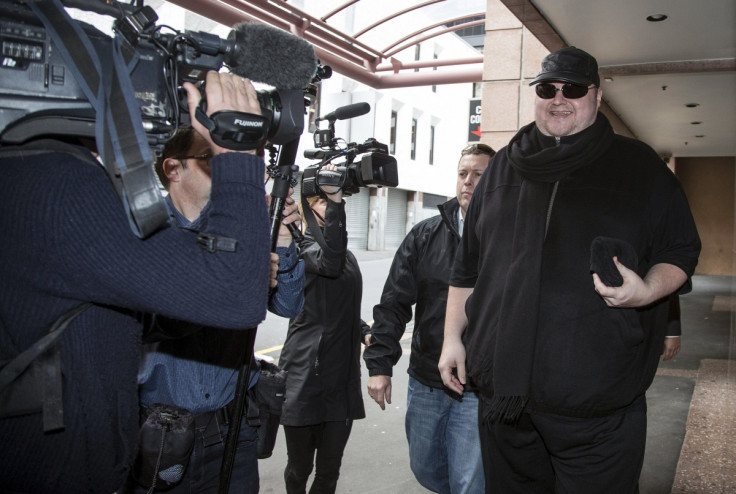Kim Dotcom extradition hearing: Blow to Dotcom as original extradition notices found

New Zealand authorities have finally located the original copies of the request to have controversial internet entrepreneur Kim Dotcom and his Megaupload colleagues extradited to the US to stand trial for copyright infringement and money laundering.
On 30 September, North Shore district court services manager Fiona Parkes, acting as a witness for the Crown, produced several documents that appeared to be copies of the extradition requests.
Dotcom's lawyer Ron Mansfield noticed that the documents had not been date-stamped and, under cross examination by the defence, Parkes admitted she did not know whether any originals of the documents existed.
The extradition documents would have been filed together with the provisional arrest warrants and other supporting evidence in order for the 2012 raid on Dotcom's mansion to have been authorised. Under the Extradition Act, a copy of the documents would also have been given to the justice minister when he was briefed.
Did the justice minister see the original extradition notice?
If the original documents could not be found, this would raise the implication that the raid had not been properly justified, which Dotcom has been saying repeatedly in court and the media since the raid.
However, according to Radio New Zealand News, Dotcom's hopes have now been dashed as the extradition hearing's court registrar, Jennifer Spence, appeared as a witness for the Crown to present the original extradition documents and verify their authenticity. She said she had found the original documents in the judges' chambers at North Shore district court, which has jurisdiction over the extradition case.
Grant Illingworth, the lawyer for former Megaupload executives Mathias Ortmann and Bram van der Kolk, asked Ministry of Justice witness Charlotte Haigh whether Judith Collins, the justice minister at the time, definitely received the original extradition notices. But Haigh told the court she did not know if that fact had been recorded on the Ministry's file.
The judge presiding, Justice Nevin Dawson, has now ordered Haigh to review the file and confirm whether Collins received the original notices. The answer is expected within the next week.
Questioning the legality of the 2012 raid
Since 2012, Dotcom has been fighting tooth and nail for justification of the raid on his home, which saw New Zealand authorities seize millions of dollars in various bank accounts located in New Zealand and Hong Kong, as well as several luxury cars, the mansion, four jet skis, five TVs, a watch worth $10,000 (£6,540) and an Olaf Mueller photograph worth over $100,000.
In June 2012, the New Zealand High Court ruled that the search warrants used were illegal. However, in February 2014, the Court of Appeal ruled that the police raids were legal but the FBI's removal of electronic information seized during the search was not.
Dissatisfied with this ruling, Dotcom took the case to the New Zealand Supreme Court, but in December 2014, his appeal was dismissed, according to TorrentFreak.
While Chief Justice Dame Sian Elias did believe there had been a miscarriage of justice, she was overruled by the remaining four judges, who said that although the search warrants had been deficient in detailing the alleged offences, there had been no damage to Dotcom or his colleagues.
© Copyright IBTimes 2025. All rights reserved.






















